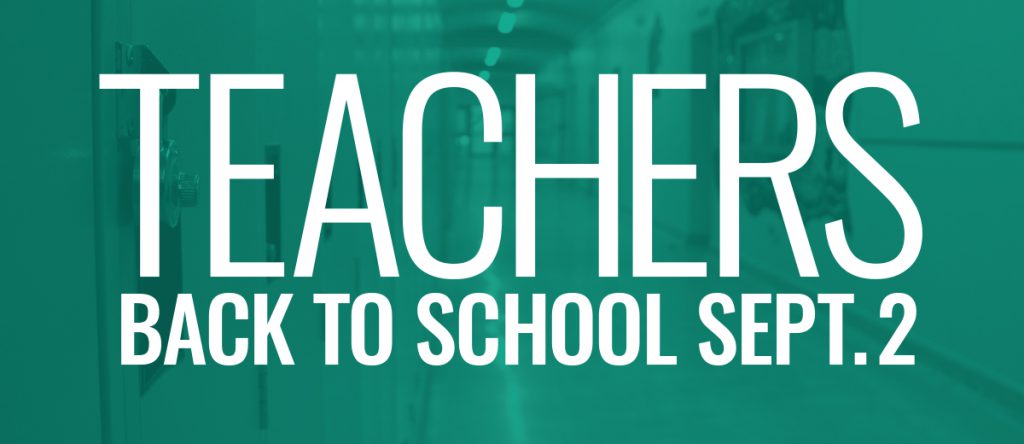
Education Minister Kelvin Goertzen today announced that the 2020/21 school year will begin on Sept. 8 for students, after Labour Day.
However, teachers and staff will be expected to report to schools on Sept. 2 to work for three mandated non-instructional days, preparing for the start of the school year. This will reduce the number of remaining teacher PD or admin days to seven.
“The Society is pleased that the government has decided to stay with a post-Labour Day start to the school year for students,” said MTS president James Bedford. “But in a year that we have faced unprecedented challenges due to a global pandemic we are very frustrated to hear that teachers will be losing out on crucial time devoted to collaborating on ways to help students succeed.”
Bedford said that the whole point of the June 1 re-entry was to prepare schools for students to return in the fall and that the addition of three non-instructional days at the beginning of the school year restricts the ability of schools to be responsive to the needs of teachers and students during the school year.
Bedford said that teachers and students alike stand to lose under this plan because regular opportunities for teaching, learning, and collaboration will be critical to the success of the year, especially in anticipation of the evolution of COVID and the challenges of the regular flu season. This plan diminishes the ability of teachers to work responsively and collaboratively to meet the needs of students and changing health orders by forcing teachers to use three non-instructional days before students even set foot in the classroom.
“If there ever was a year where the importance of professional development days is crucial it is this one,” said Bedford. “And when I say PD, let me be clear, I am referring to collaborative conversations and inquiry, where teachers work together to solve problems of practice and learn new ways of managing challenges, particularly at a time when teaching and learning is requiring tremendous flexibility.”
Bedford said that teacher collective efficacy relies on these opportunities.
“It is a shame that the government, after months of praising the work and commitment of teachers, has now moved to take away teacher autonomy by mandating the when and what of non-instructional days,” said Bedford. “This move devalues teachers and is very disappointing.”
Still to come in the government’s planning is how schools in general and classrooms in particular will look and whether there will be drastic changes in such issues as the size of classes.
